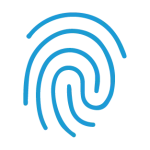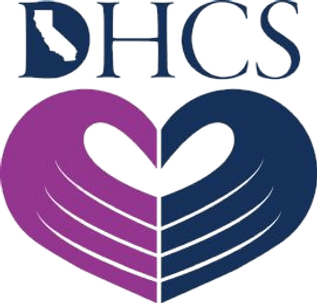Depression and ADD meds can be helpful, but if you have both conditions, finding the right treatment can be tough. Many people with ADHD also struggle with depression and addiction, and the wrong diagnosis can make things worse instead of better.
So, what is this type of diagnosis, how do ADD and depression affect each other, and what are the best ways to find the right treatment and support?

What Is Dual Diagnosis?
Dual diagnosis means having two conditions at the same time. Most often, it refers to having both a mental illness and a substance use disorder (SUD), like drug or alcohol addiction. It can also mean having a mental illness along with a developmental disability or neurodivergence.
Neurodivergence means your brain works differently from what people consider “typical.” It’s not a bad thing; it’s just a different way of thinking, learning, and experiencing the world.
Some common examples of neurodivergence include:
- ADD/ADHD (Attention Deficit Disorder/Attention Deficit Hyperactivity Disorder) – You might struggle with focus, impulsivity, or hyperactivity.
- Autism – You may think or communicate in unique ways, have strong interests, or be sensitive to certain sounds or textures.
- Dyslexia – Reading or spelling might be harder for you.
- Tourette’s Syndrome – You might have tics, like sudden movements or sounds you can’t control.
With various factors linking mental health, addiction, and neurodivergence, having a dual diagnosis can make it harder to get the right treatment.
In the past, doctors and therapists often focused on just one condition while ignoring the other. For example, a mental health provider might have treated depression without addressing addiction, or a rehab center might have helped with substance use but not anxiety or ADD/ADHD. This made it difficult for people to get the full support they needed.1
Now, experts understand that both conditions affect each other. Treating both at the same time, rather than separately, can lead to better results.
The Link Between Depression and Attention Deficit Disorder (ADD) Meds
If you have ADD or ADHD, you are much more likely to experience depression. Studies show that anywhere from 18.6% to 53.3% of people with ADHD also have depression.2 In fact, adults with ADHD are nearly three times more likely to have depression than those without it.3
This happens because ADHD and depression affect your brain in different but connected ways. ADHD makes it hard to focus, remain organized, and complete tasks. If you struggle with these things daily, it can lead to frustration, low self-esteem, and feelings of failure. Over time, this can develop into depression.
Medications for ADD and ADHD, especially stimulants like Adderall and Ritalin, are designed to help with focus, attention, and impulse control. For some people, these meds also improve mood and motivation. However, they don’t treat depression directly.
In some cases, stimulant medications can make depression symptoms worse. It can raise serotonin levels too much, which may cause serious side effects. Using stimulants to manage depression on your own can make things worse, as they might increase depression symptoms instead of helping.4 They might cause anxiety, irritability, or mood crashes when they wear off. If you already have depression, these side effects can make things more challenging.
On the other hand, when ADD or ADHD is treated properly, some people find their depression improves. Feeling more in control of your focus and daily life can reduce stress and boost confidence.
Challenges of Treating Dual Diagnosis
Many doctors and therapists focus on one problem at a time, but that doesn’t always work when both conditions affect each other.
Managing Medications for Two Conditions
Finding the right medication can be complicated when you have a dual diagnosis. Some medications that help with mental health issues can make substance use problems worse, and some addiction treatments may not work well for people with mental illness.
For example:
- Stimulants for ADHD – They can help with focus but may not be safe for someone with a history of substance abuse.
- Antidepressants – These medications can improve mood but might not mix well with other medications.
- Medications for substance use recovery – They might cause side effects that affect mental health.
Because of these risks, it’s important to work with a doctor who understands both conditions. They can help you find the safest and most effective treatment plan.
Misdiagnosis and Improper Treatment
Sometimes, dual diagnosis is hard to recognize. Symptoms of one condition can look like symptoms of another.
For example:
- Depression and substance use – Some people use alcohol or drugs to cope with depression, but that can make both issues worse. A doctor who only looks at the substance use might miss the depression.
- Anxiety and withdrawal symptoms – If you’re trying to stop using a substance, you might feel anxious. If a doctor only sees the anxiety, they might prescribe the wrong medication.
- ADHD and bipolar disorder – Both can cause mood swings and impulsive behavior, so they can be confused with each other.
It’s important to find a mental health provider who understands dual diagnosis and can treat both conditions together. Getting the right help may take time, but with the right doctor and support system, you can find a treatment plan that works for you.
Seeking Professional Support
Trying to manage everything on your own can be overwhelming, and the wrong treatment can make things worse. A mental health professional can help you understand what’s happening and create a plan that works for your mental health, neurodivergence, or SUD.
When Should You See a Mental Health Professional?
You should consider reaching out for help if:
- Your symptoms make daily life hard (work, school, or relationships).
- You feel stuck, hopeless, or overwhelmed.
- Medications don’t seem to be working, or they make you feel worse.
- You have trouble controlling substance use or other harmful behaviors.
A doctor or therapist who understands dual diagnosis can help you figure out the best way to move forward.
Finding the Right Treatment Plan
Every person is different, so treatment should fit your needs. Some options include:
- Therapy and counseling – Talking to a professional can help you manage ADHD symptoms, deal with depression, and learn better coping skills. Holistic approaches are also often helpful.
- Inpatient and intensive outpatient programs – If your symptoms are severe, a structured program with medical support might be the best choice. These programs provide therapy, medication management, and skill-building.
- Support groups and community resources – Talking to others with similar struggles can be helpful. Groups like ADHD or depression support groups, addiction recovery programs, and online communities can provide encouragement.
Getting the right treatment is key to managing depression and ADD meds safely and effectively. If you need help, OceanRock Health can guide you through the process. Our team understands how mental health and ADHD affect each other, and we can create a plan that supports your well-being. You don’t have to do this alone – reach out today and take the first step toward feeling better.

Sources:
- Dual Diagnosis – an overview | ScienceDirect Topics. (2014). Sciencedirect.com. https://www.sciencedirect.com/topics/medicine-and-dentistry/dual-diagnosis
- Katzman, M. A., Bilkey, T. S., Chokka, P. R., Fallu, A., & Klassen, L. J. (2017). Adult ADHD and Comorbid disorders: Clinical Implications of a Dimensional Approach. BMC Psychiatry, 17(1). https://bmcpsychiatry.biomedcentral.com/articles/10.1186/s12888-017-1463-3
- Babcock, T., & Ornstein, C. S. (2009). Comorbidity and its Impact in Adult Patients with Attention-Deficit/Hyperactivity Disorder: A Primary Care Perspective. Postgraduate Medicine, 121(3), 73–82. https://www.tandfonline.com/doi/abs/10.3810/pgm.2009.05.2005
- Vo, K., Nefsey, P., & Lin, C. (2015). Concurrent use of amphetamine stimulants and antidepressants by undergraduate students. Patient Preference and Adherence, 161. https://www.dovepress.com/concurrent-use-of-amphetamine-stimulants-and-antidepressants-by-underg-peer-reviewed-fulltext-article-PPA









